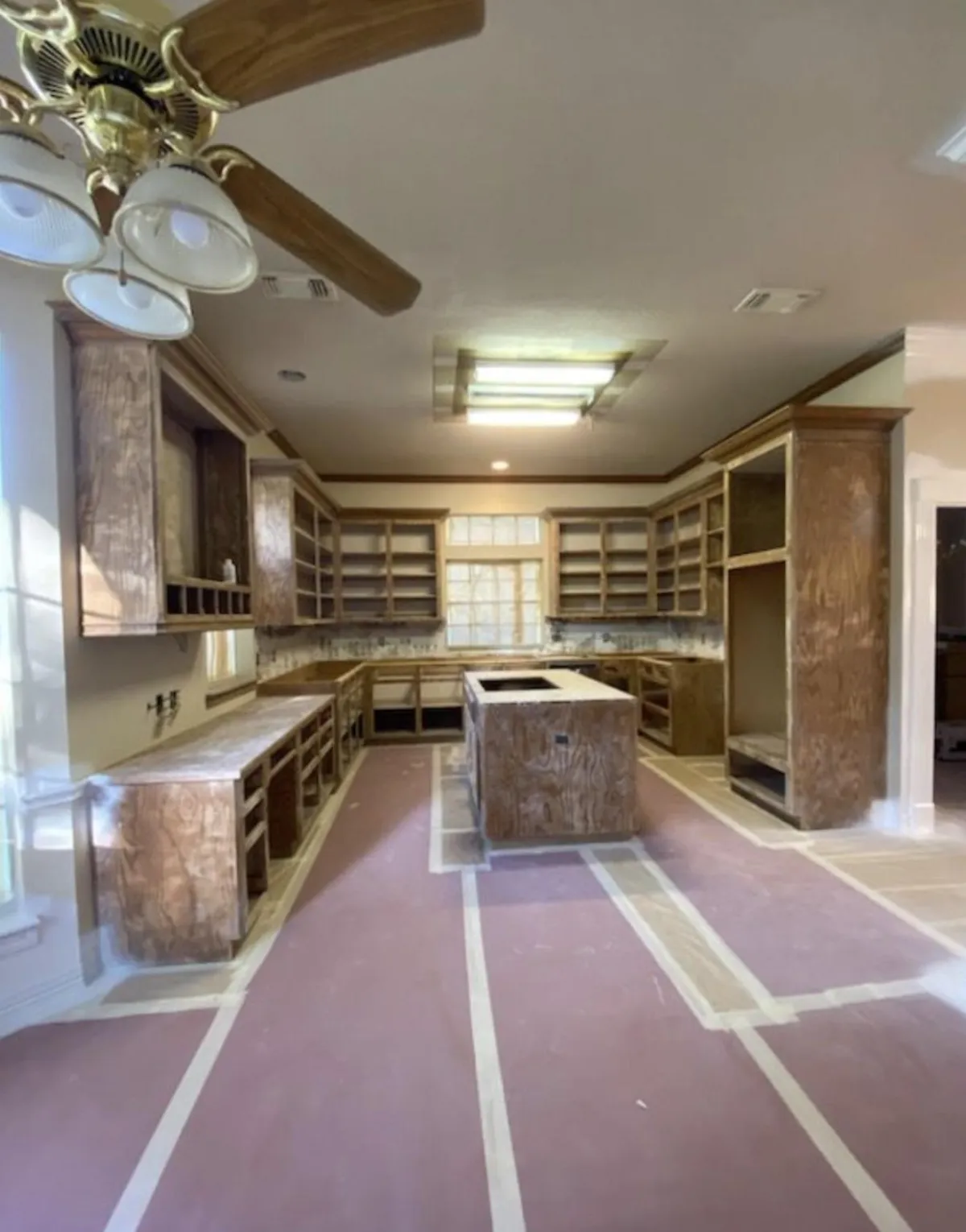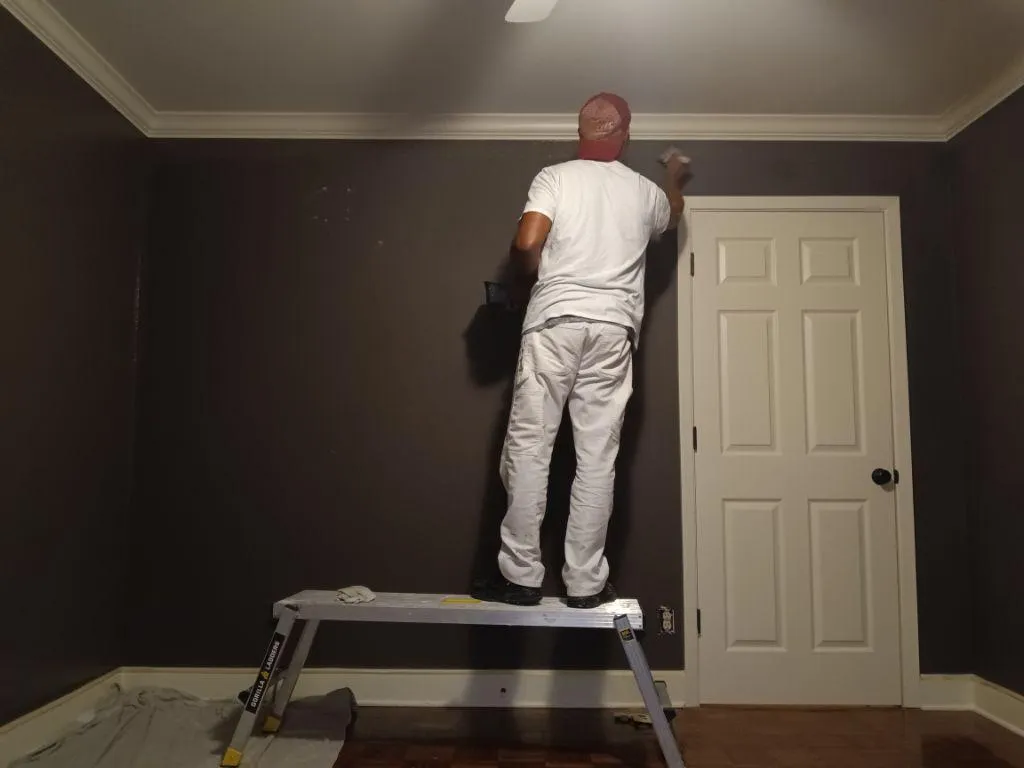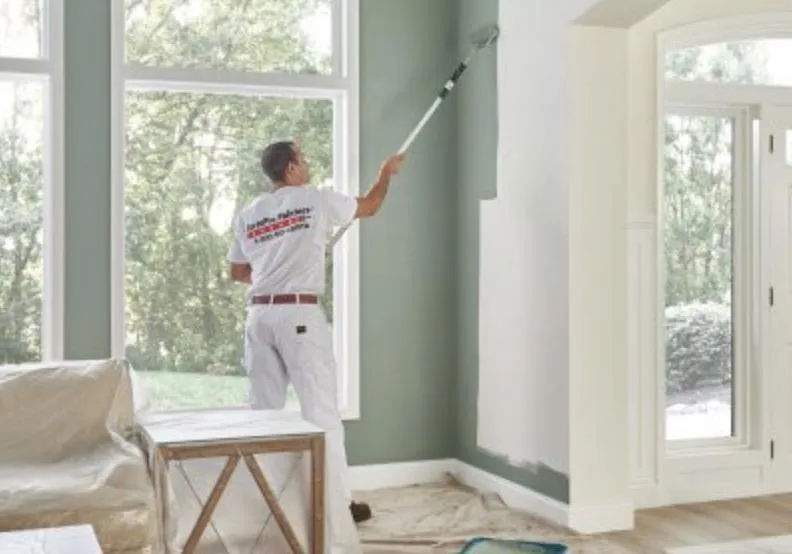Blog > Article Library
Twain Services Articles

Do I need a permit to remodel my kitchen in Texas?
Embarking on a kitchen remodeling journey in Texas is an exciting venture, promising a rejuvenated space where culinary creativity can flourish. Amid the enthusiasm, it's crucial to understand the regulatory landscape, particularly the role of permits. This guide unravels the intricacies of permits in Texas, clarifying when they are required and when you can dive into remodeling without navigating the bureaucratic waters.
The Texas Remodeling Landscape: A Regulatory Overview
Texas, known for its vast landscapes and diverse cities, offers homeowners the freedom to revamp their living spaces. However, when it comes to remodeling, certain projects trigger the need for permits. The Texas Department of Licensing and Regulation (TDLR) oversees various aspects of construction and remodeling in the state.
Understanding the Permit Requirement: When Are Permits Necessary?
Permits are essentially permissions from local authorities to undertake specific construction or renovation projects. In Texas, the necessity for permits hinges on the nature and scale of the remodeling work. Generally, permits are required for:
Building, Remodeling, or Enlarging: Any construction work that involves structural changes, alterations, or additions to the existing structure necessitates a permit. This includes expanding the kitchen footprint, modifying load-bearing walls, or altering the structure's integrity.
Other Property Improvements: Beyond the kitchen, if your remodeling project extends to other parts of the property, such as adding a deck or patio, installing a new roof, or making significant changes to the exterior, permits are typically required.
Exemptions from Permit Requirements: Cosmetic Work vs. Structural Changes
Understanding the distinction between cosmetic and structural changes is crucial in determining permit requirements. Cosmetic work, which includes activities like painting, wallpapering, carpeting, cabinet installation, and trim work, does not generally require permits. These are considered non-structural improvements that don't impact the building's integrity.
Common Kitchen Remodeling Projects Requiring Permits:
Structural Changes: If your remodeling plans involve altering the structure, such as removing or adding walls, changing the layout, or modifying the roofline, permits are likely required.
Plumbing and Electrical Work: Any modifications to plumbing or electrical systems, including the installation of new appliances, require permits to ensure compliance with safety codes.
Windows and Doors: Enlarging or modifying windows and doors may fall under structural changes, necessitating permits.
Additions or Extensions: If your kitchen remodel involves expanding the space or adding an extension, permits are a must.
Navigating the Permitting Process:
Local Jurisdiction: The permitting process is often managed at the local level. Depending on your city or county, you'll need to contact the respective building or planning department to initiate the process.
Submission of Plans: For significant remodeling projects, you may be required to submit detailed plans and specifications. This ensures that your project complies with local building codes and zoning regulations.
Inspections: Throughout the remodeling process, inspections may be scheduled to verify that the work aligns with the approved plans and meets safety standards.
Potential Consequences of Ignoring Permit Requirements:
While it might be tempting to bypass the permitting process, doing so can have severe consequences:
Fines and Penalties: Local authorities can impose fines for unpermitted work, turning what might have been a cost-saving measure into a financial burden.
Complications During Resale: Unpermitted work can complicate the resale of your home. Prospective buyers may be wary of a property with an unpermitted remodel.
Safety and Code Compliance: Permits ensure that the work is done in accordance with safety codes, protecting you and future occupants from potential hazards.
Twain Services: Your Partner in Compliance and Creativity:
At Twain Services, we understand the delicate balance between realizing your dream kitchen and adhering to regulatory requirements. Our experienced team is well-versed in navigating the permitting process, ensuring that your remodeling project is not only creatively fulfilling but also compliant with Texas regulations.
Conclusion: Balancing Creativity and Compliance
In conclusion, while many kitchen remodeling projects in Texas don't require permits, it's crucial to be aware of the threshold where regulatory approval becomes necessary. By understanding the permit landscape, homeowners can embark on their remodeling journey with confidence, knowing that they are not just enhancing their living space but doing so in compliance with local regulations. At Twain Services, we're here to guide you through this process, ensuring a seamless blend of creativity and compliance in your kitchen remodeling endeavors.
Older Articles


Contact Us
Service Hours
Social Media
Blog > Article Library


Do I need a permit to remodel my kitchen in Texas?
Embarking on a kitchen remodeling journey in Texas is an exciting venture, promising a rejuvenated space where culinary creativity can flourish. Amid the enthusiasm, it's crucial to understand the regulatory landscape, particularly the role of permits. This guide unravels the intricacies of permits in Texas, clarifying when they are required and when you can dive into remodeling without navigating the bureaucratic waters.
The Texas Remodeling Landscape: A Regulatory Overview
Texas, known for its vast landscapes and diverse cities, offers homeowners the freedom to revamp their living spaces. However, when it comes to remodeling, certain projects trigger the need for permits. The Texas Department of Licensing and Regulation (TDLR) oversees various aspects of construction and remodeling in the state.
Understanding the Permit Requirement: When Are Permits Necessary?
Permits are essentially permissions from local authorities to undertake specific construction or renovation projects. In Texas, the necessity for permits hinges on the nature and scale of the remodeling work. Generally, permits are required for:
Building, Remodeling, or Enlarging: Any construction work that involves structural changes, alterations, or additions to the existing structure necessitates a permit. This includes expanding the kitchen footprint, modifying load-bearing walls, or altering the structure's integrity.
Other Property Improvements: Beyond the kitchen, if your remodeling project extends to other parts of the property, such as adding a deck or patio, installing a new roof, or making significant changes to the exterior, permits are typically required.
Exemptions from Permit Requirements: Cosmetic Work vs. Structural Changes
Understanding the distinction between cosmetic and structural changes is crucial in determining permit requirements. Cosmetic work, which includes activities like painting, wallpapering, carpeting, cabinet installation, and trim work, does not generally require permits. These are considered non-structural improvements that don't impact the building's integrity.
Common Kitchen Remodeling Projects Requiring Permits:
Structural Changes: If your remodeling plans involve altering the structure, such as removing or adding walls, changing the layout, or modifying the roofline, permits are likely required.
Plumbing and Electrical Work: Any modifications to plumbing or electrical systems, including the installation of new appliances, require permits to ensure compliance with safety codes.
Windows and Doors: Enlarging or modifying windows and doors may fall under structural changes, necessitating permits.
Additions or Extensions: If your kitchen remodel involves expanding the space or adding an extension, permits are a must.
Navigating the Permitting Process:
Local Jurisdiction: The permitting process is often managed at the local level. Depending on your city or county, you'll need to contact the respective building or planning department to initiate the process.
Submission of Plans: For significant remodeling projects, you may be required to submit detailed plans and specifications. This ensures that your project complies with local building codes and zoning regulations.
Inspections: Throughout the remodeling process, inspections may be scheduled to verify that the work aligns with the approved plans and meets safety standards.
Potential Consequences of Ignoring Permit Requirements:
While it might be tempting to bypass the permitting process, doing so can have severe consequences:
Fines and Penalties: Local authorities can impose fines for unpermitted work, turning what might have been a cost-saving measure into a financial burden.
Complications During Resale: Unpermitted work can complicate the resale of your home. Prospective buyers may be wary of a property with an unpermitted remodel.
Safety and Code Compliance: Permits ensure that the work is done in accordance with safety codes, protecting you and future occupants from potential hazards.
Twain Services: Your Partner in Compliance and Creativity:
At Twain Services, we understand the delicate balance between realizing your dream kitchen and adhering to regulatory requirements. Our experienced team is well-versed in navigating the permitting process, ensuring that your remodeling project is not only creatively fulfilling but also compliant with Texas regulations.
Conclusion: Balancing Creativity and Compliance
In conclusion, while many kitchen remodeling projects in Texas don't require permits, it's crucial to be aware of the threshold where regulatory approval becomes necessary. By understanding the permit landscape, homeowners can embark on their remodeling journey with confidence, knowing that they are not just enhancing their living space but doing so in compliance with local regulations. At Twain Services, we're here to guide you through this process, ensuring a seamless blend of creativity and compliance in your kitchen remodeling endeavors.
Older Articles


Contact Us
(346) 209-4009
Humble, Texas, 77346
Service Hours
Mon-Sat: 8am-6pm
Sun: Off
Social Media





